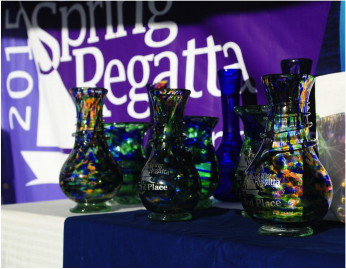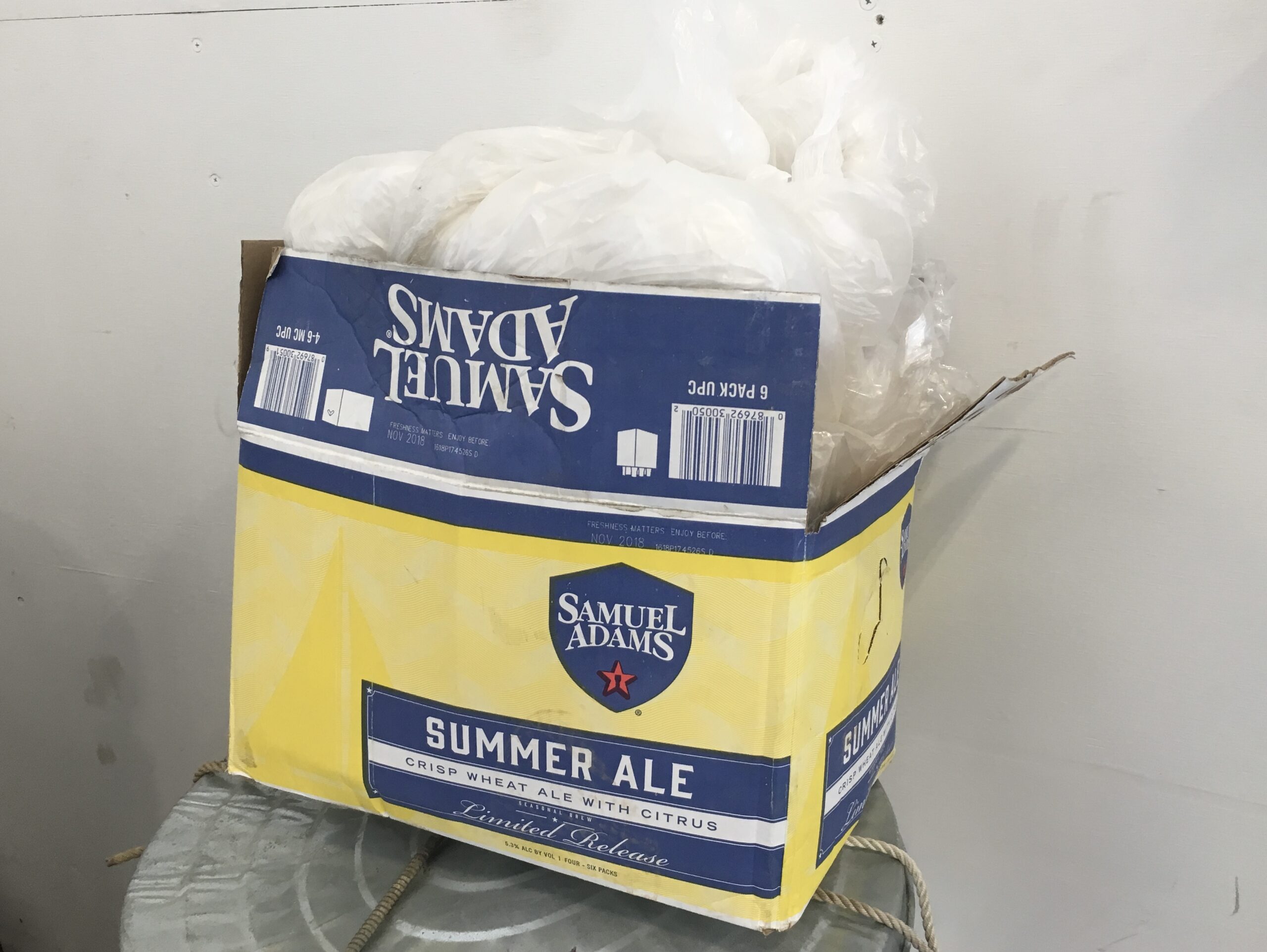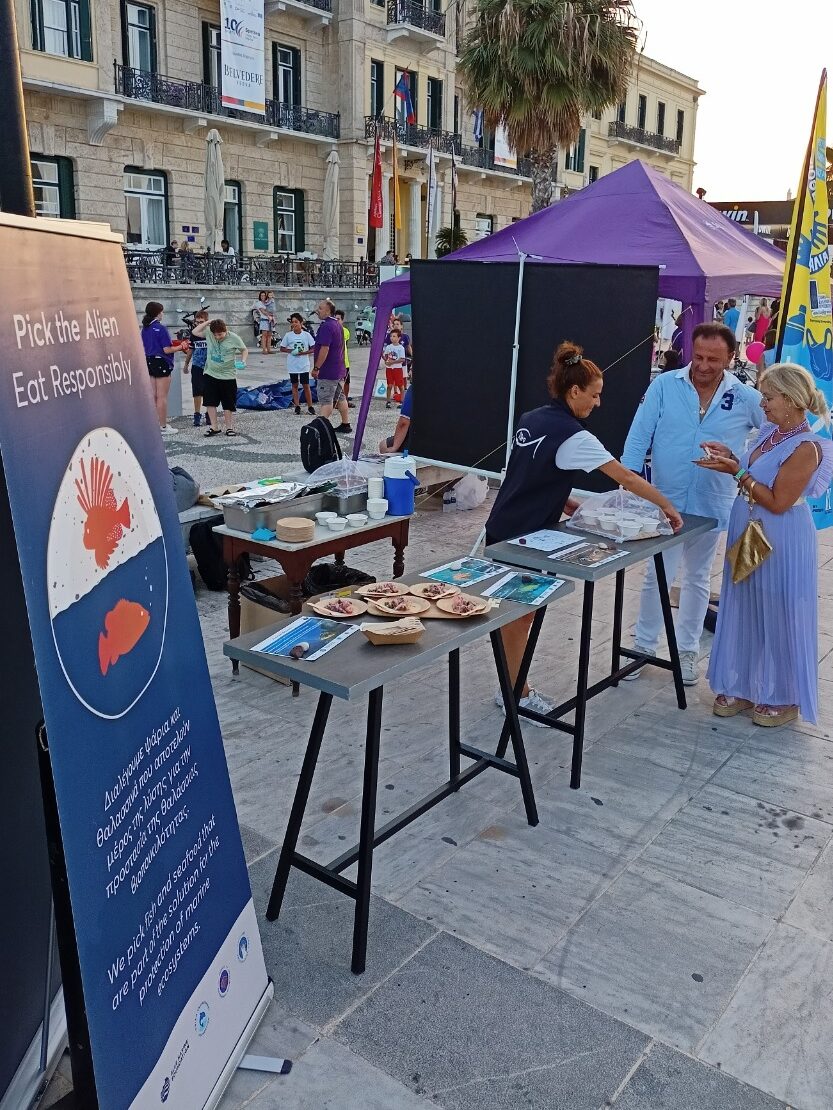Hosting a water-loving event on an island can present unique sustainability challenges, from difficulty sourcing food and materials to limited waste infrastructure and fragile coastal and marine ecosystems. Islands are closely interconnected to the sea, so events can have a significant impact on the local environment. While these events took place on islands in such seemingly disparate places as the Caribbean, New England, and the Mediterranean, they all face some similar challenges
BVI Spring Regatta & Sailing Festival
Since 2008, the BVI Spring Regatta has participated in the Clean Regattas program, making it the longest running Clean Regatta in the Caribbean. Every year, organizers continue to move the sustainability needle forward at this international week-long event by introducing new green initiatives that help protect the local environment.
One of the toughest challenges in the British Virgin Islands is properly handling waste due to the limited infrastructure. When the BVI Spring Regatta first teamed up with Sailors for the Sea, recycling wasn’t even an option– waste was generally exported or incinerated. To overcome this obstacle, they partnered with a local nonprofit, GreenVI, to upcycle all the glass bottles collected from the event into beautiful awards. To improve collection rates, the motto became, “The drink you hold this year could be the award you win next year.”

Due to the warm climate and local pests, open composting presented another challenge to the BVI Spring Regatta. To divert food waste from the landfill, organizers found a creative solution by teaming up with a local hog farmer. During the event, vendors collected food scraps in “pig buckets,” and each morning the farmer would ride his donkey to the regatta village to collect the food scraps to feed his pigs.
Vineyard Cup
In 2015, the Vineyard Cup, hosted by Sail Martha’s Vineyard in Massachusetts, made a bold leap towards sustainability by becoming a Locally Sourced/Zero Waste event. Over three-days, more than 900 meals were served, and 100% of the food was sourced on Martha’s Vineyard. The island came together to provide wild-caught sustainable seafood, locally raised pigs and island-grown vegetables. The organizers also returned all food scraps to the farms to be composted.
The Vineyard Cup also tackled waste head-on by by providing reusable dinnerware, including plates, utensils, glasses and napkins, banning single-use water bottles and using returnable bottles. To help attendees sort their reusables and waste, organizers recruited youth sailors to be Green Team members. This move empowered local kids to teach adults about proper waste management. The results were impressive: the event, which once generated nearly five tons of waste, produced only a single small box (3 cubic feet) of waste over the entire weekend. Based on the success of the event, Sail Martha’s Vineyard helped other island events, including a road race and film festival, reduce their waste.

Spetses Classic Yacht Regatta
The Spetses Classic Yacht Regatta is a unique 4-day event hosted by the Yacht Club of Greece on the Mediterranean island of Spetses. Some of the infrastructure in place on the island helped organizers achieve several Clean Regattas best practices, including permanent potable water stations and readily available alternative transportation (ex. horse-drawn carriages and bicycles), since the island does not allow private automobiles.
The event’s organizers aimed to go beyond just hosting a regatta; they wanted to foster a deeper connection between participants and the environment. They partnered with local organizations to discuss a wide range of topics, including local flora protection, sustainable development on the island and the local marine ecosystem. Additionally, organizers collaborated with the organization, iSea, to raise awareness about invasive species. Through this partnership, all seafood served at the event was locally sourced invasive species, with the tagline “Pick an Alien, Eat Responsibly.” To help prevent food waste from ending up in the landfill, organizers ensured that leftover food from the ‘Pick an Alien’ event could be served the next day.

Tips for Success
As showcased by each of these events, the key to achieving sustainability success lies in community involvement. On islands with limited resources and infrastructure, working together with local stakeholders is crucial. Each of these Clean Regattas had positive impacts that extended far beyond the events themselves. Uniting communities and local organizations, supporting local farmers, and pushing for zero waste solutions are ways that events can implement the Clean Regattas best practices and leave a legacy of sustainability.


